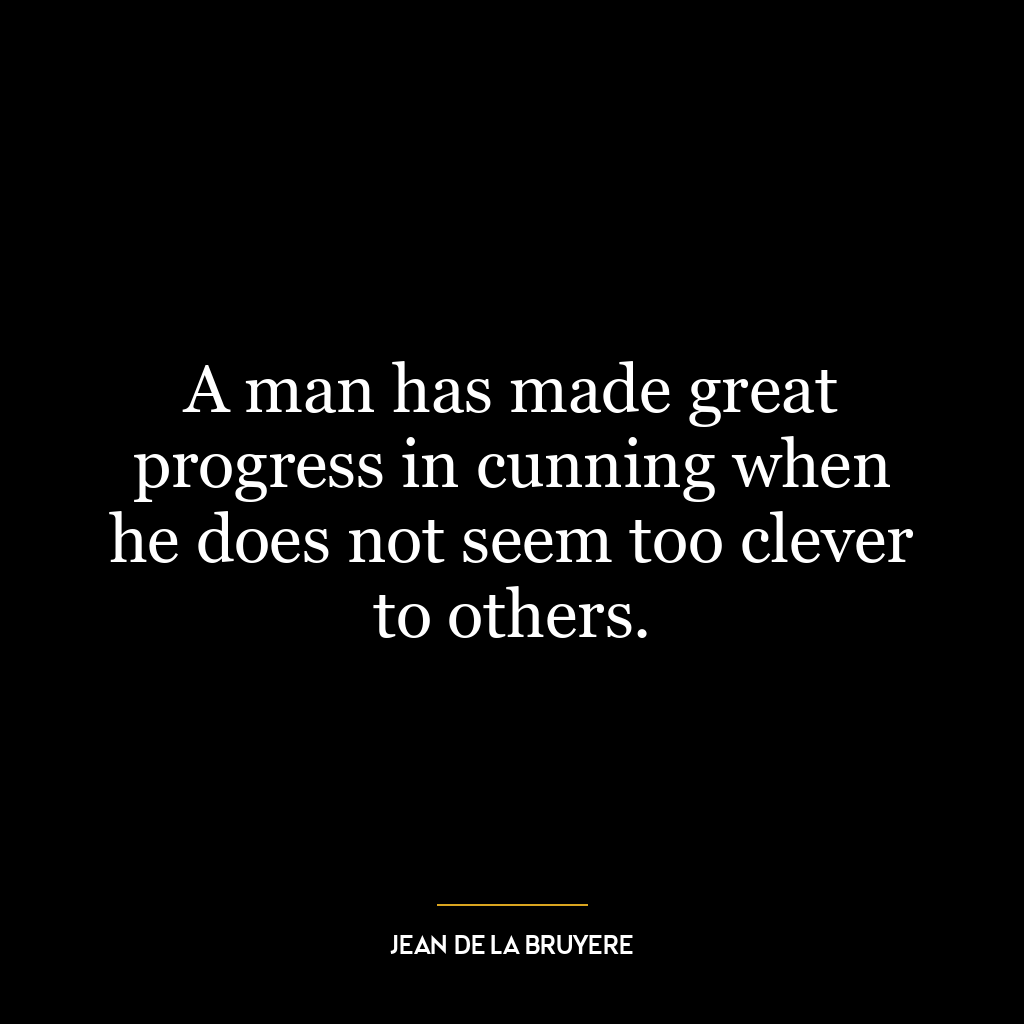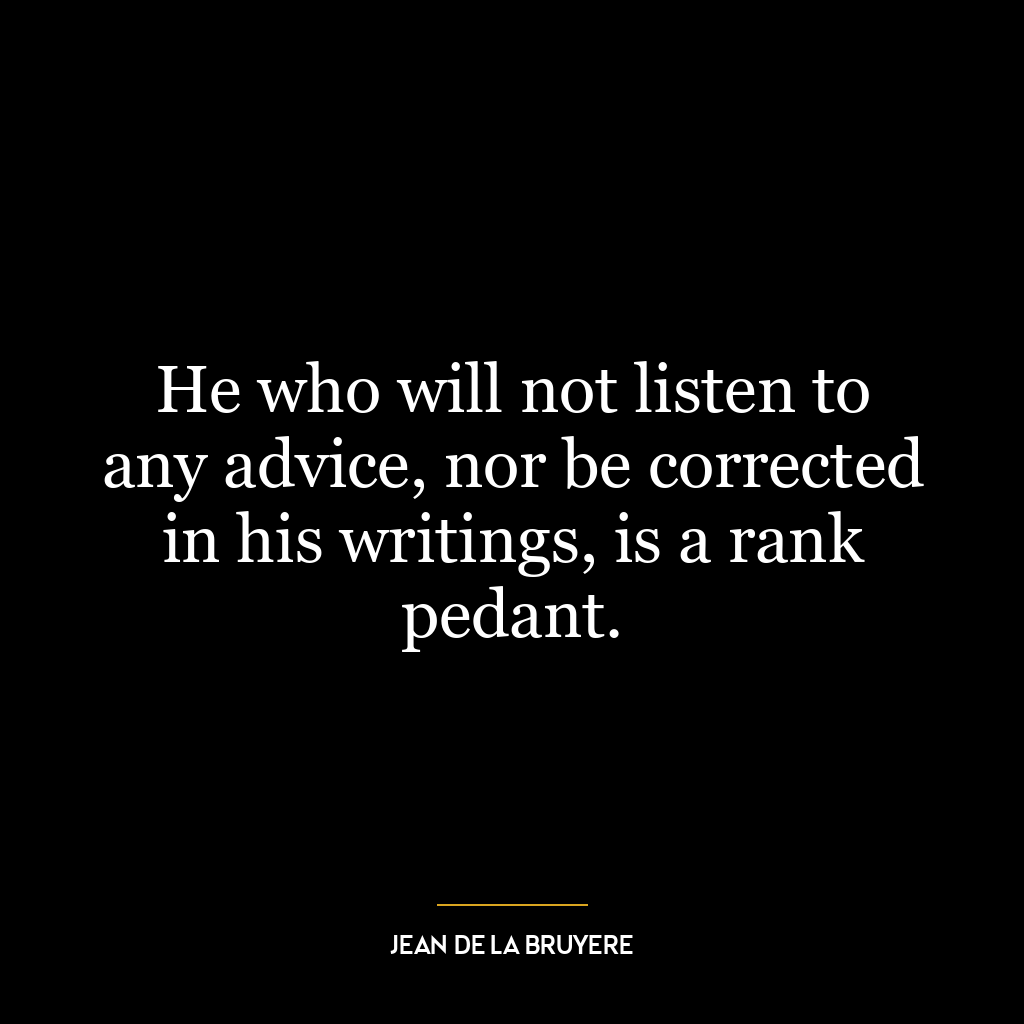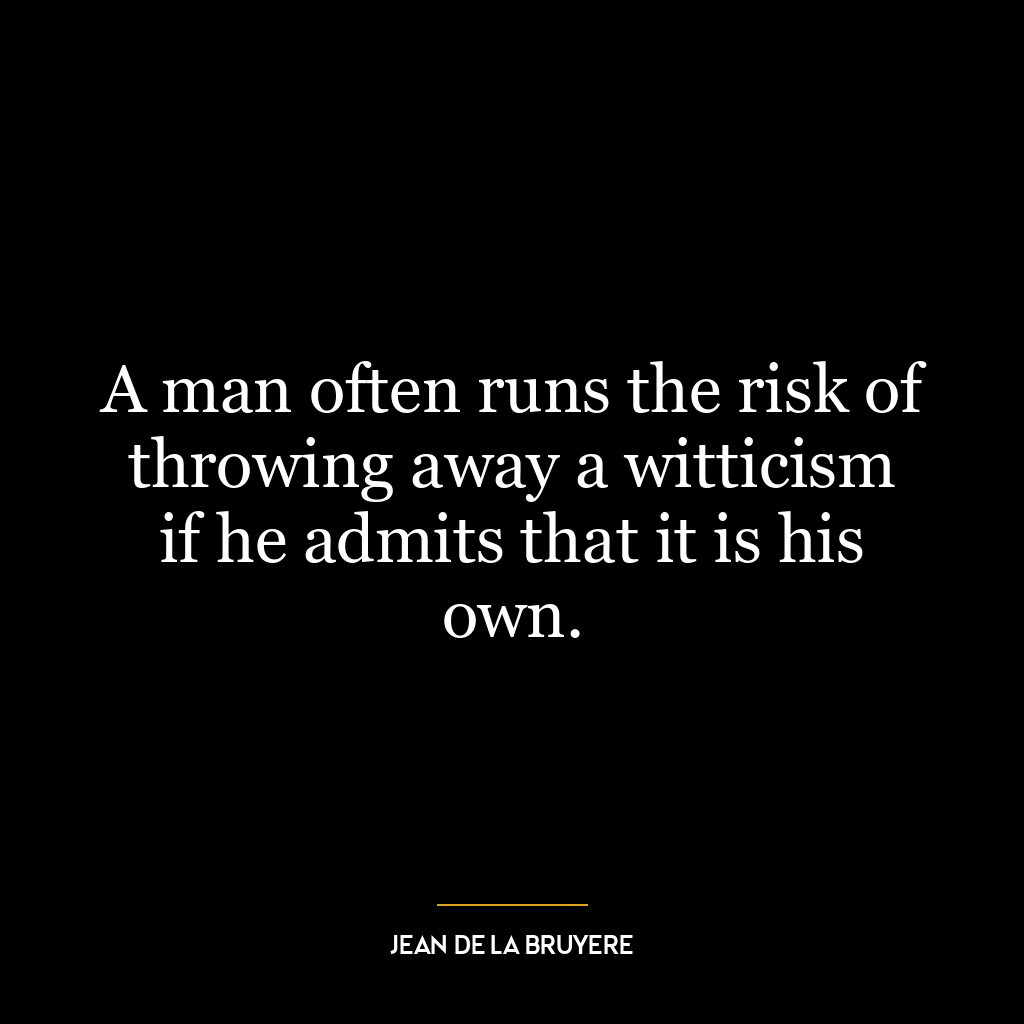We are never, never so much in danger of being proud as when we think we are humble.
This quote speaks to the paradoxical nature of pride and humility. It suggests that when we believe ourselves to be humble, we are at our most vulnerable to falling into the trap of pride. This is because believing oneself to be humble can easily lead to a sense of superiority or self-righteousness, which is actually a form of pride.
The quote underscores the subtle and deceptive nature of pride. It’s easy for us to recognize blatant arrogance in ourselves and others, but it’s much harder to detect when our perceived humility becomes a source of self-congratulation or smugness. This kind of hidden pride can be even more dangerous than overt arrogance because it’s less likely to be checked or corrected.
In today’s world, this idea is highly relevant in many areas such as social media culture where self-promotion often masquerades as modesty. For example, someone might post about their good deeds not out genuine humility but for recognition and validation from others – what some call “humblebragging”.
In terms of personal development, this quote serves as a reminder that true humility involves recognizing our own limitations and flaws without either inflating or deflating our sense of self-worth. It encourages us not only strive for humility but also remain vigilant against the sneakier forms of pride that can creep in unnoticed.
Moreover, it emphasizes the importance of introspection and mindfulness in maintaining genuine humility; we need constant self-awareness so as not fall into complacency by thinking we’ve achieved ultimate humbleness – which would ironically make us proud instead.
this quote invites us on an ongoing journey towards true humility – one where acknowledging our susceptibility to pride is perhaps the most humble act itself.










